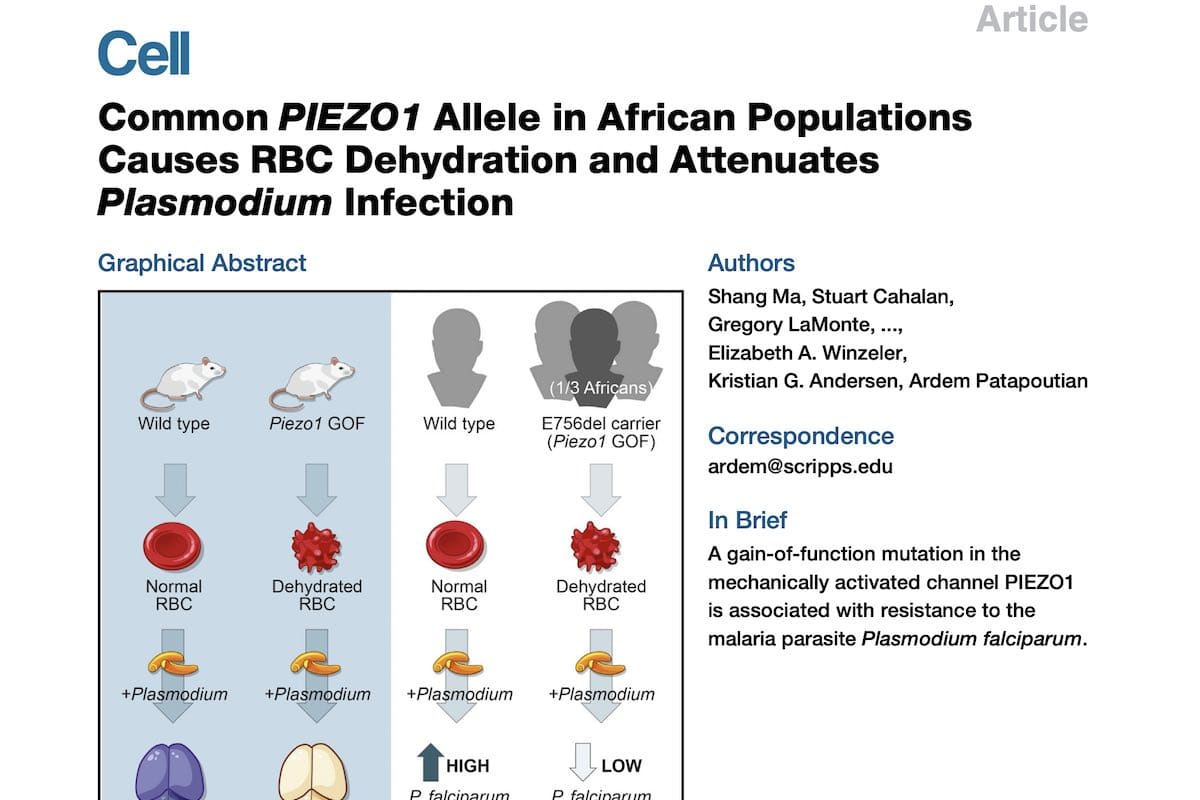
Title
Common PIEZO1 Allele in African Populations Causes RBC Dehydration and Attenuates Plasmodium Infection
Journal
Cell. 2018 Apr 5;173(2):443-455.e12. doi: 10.1016/j.cell.2018.02.047.
Authors
Ma S, Cahalan S, LaMonte G, Grubaugh ND, Zeng W, Murthy SE, Paytas E, Gamini R, Lukacs V, Whitwam T, Loud M, Lohia R, Berry L, Khan SM, Janse CJ, Bandell M, Schmedt C, Wengelnik K, Su AI, Honore E, Winzeler EA, Andersen KG, Patapoutian A.
Abstract
Hereditary xerocytosis is thought to be a rare genetic condition characterized by red blood cell (RBC) dehydration with mild hemolysis. RBC dehydration is linked to reduced Plasmodium infection in vitro; however, the role of RBC dehydration in protection against malaria in vivo is unknown. Most cases of hereditary xerocytosis are associated with gain-of-function mutations in PIEZO1, a mechanically activated ion channel. We engineered a mouse model of hereditary xerocytosis and show that Plasmodium infection fails to cause experimental cerebral malaria in these mice due to the action of Piezo1 in RBCs and in T cells. Remarkably, we identified a novel human gain-of-function PIEZO1 allele, E756del, present in a third of the African population. RBCs from individuals carrying this allele are dehydrated and display reduced Plasmodium infection in vitro. The existence of a gain-of-function PIEZO1 at such high frequencies is surprising and suggests an association with malaria resistance.

